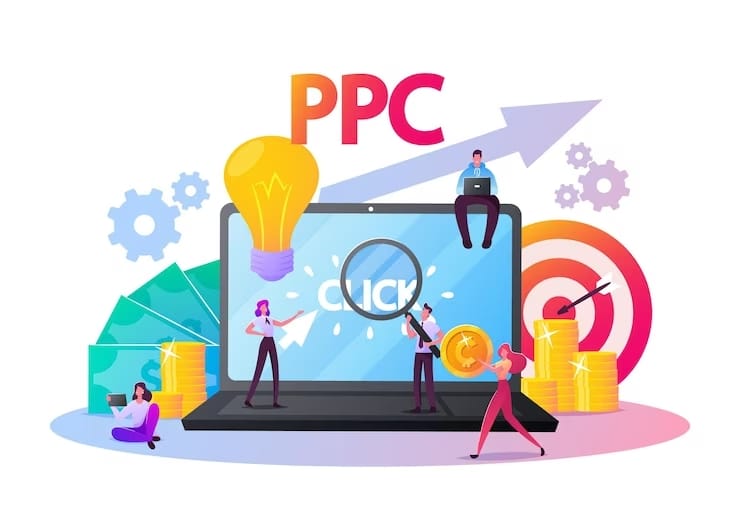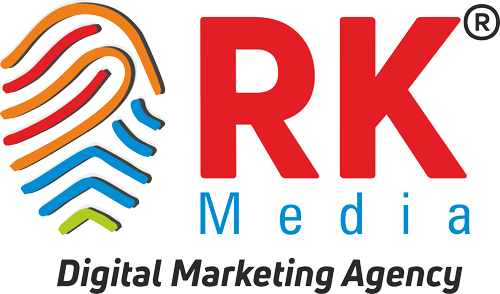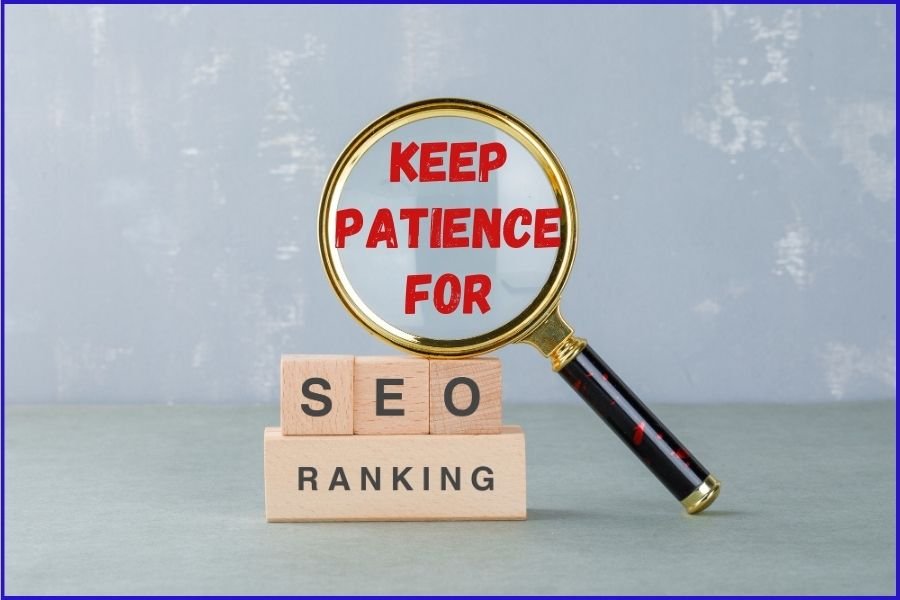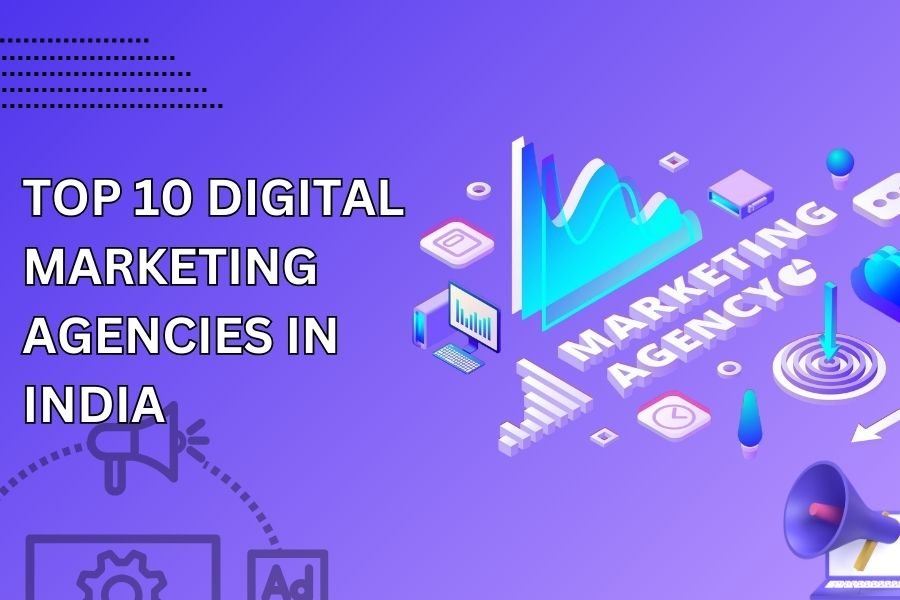Why Every Business Needs Performance Marketing in Their Digital Strategy
Introduction
 In today’s fast-paced digital landscape, businesses are constantly seeking innovative ways to reach their target audience and drive growth. The emergence of digital marketing has revolutionized the way companies promote their products and services. Among the many digital marketing strategies available, performance marketing has risen to prominence as an indispensable tool for achieving measurable results. In this blog, we, RK Media, a leading digital marketing agency, will shed light on why every business needs performance marketing in their digital strategy.
In today’s fast-paced digital landscape, businesses are constantly seeking innovative ways to reach their target audience and drive growth. The emergence of digital marketing has revolutionized the way companies promote their products and services. Among the many digital marketing strategies available, performance marketing has risen to prominence as an indispensable tool for achieving measurable results. In this blog, we, RK Media, a leading digital marketing agency, will shed light on why every business needs performance marketing in their digital strategy.
Understanding Performance Marketing
Before diving into the reasons for its necessity, let’s first define what performance marketing is. Performance marketing is a comprehensive digital marketing approach that focuses on driving specific actions or conversions, such as website visits, clicks, leads, sales, or other measurable goals. The key principle of performance marketing is accountability, as it allows businesses to track the effectiveness of their marketing efforts and optimize campaigns for better ROI (Return on Investment).
Unlike traditional marketing methods, performance marketing relies on data-driven insights and real-time analytics to optimize campaigns and achieve desired outcomes.
Measurable Results
One of the primary reasons why performance marketing is essential for businesses is its ability to deliver measurable results. Performance marketing relies on quantifiable metrics and KPIs (Key Performance Indicators) to assess the success of marketing campaigns. Common performance metrics include clicks, conversions, sales, leads, and customer acquisitions. In the digital age, data is king, and performance marketing leverages data to track and measure the success of marketing efforts. This transparency allows businesses to determine the return on investment (ROI) for each marketing campaign with precision.
- ROI Tracking: Performance marketing provides clear insights into which campaigns, channels, or strategies are delivering the best ROI. This information enables businesses to allocate their marketing budget more effectively, optimizing their spending for maximum results.
- Cost-Per-Action (CPA): Businesses can set specific actions or conversions as goals (e.g., cost per click, cost per lead, cost per sale) and track the cost associated with each action. This helps in identifying which marketing channels or campaigns are the most cost-effective.
- Real-Time Analytics: Performance marketing platforms offer real-time analytics, allowing businesses to monitor campaign performance as it happens. This real-time feedback loop enables quick adjustments and optimization for better results.
Targeted Advertising
Performance marketing excels in its ability to target specific audience segments with precision. Performance marketers use data and analytics to identify and target specific customer segments with personalized content and offers. This precision helps maximize the chances of conversions. Unlike traditional advertising methods that cast a wide net, performance marketing leverages data and advanced targeting options to reach the right people at the right time.
- Audience Segmentation: Businesses can segment their target audience based on demographics, interests, behaviour, and other criteria. This ensures that marketing messages are tailored to resonate with specific customer segments.
- Personalization: Personalized marketing campaigns, a hallmark of performance marketing, increase engagement and conversion rates. By delivering content and offers tailored to individual preferences, businesses can foster stronger customer relationships.
- Retargeting: Performance marketing allows for retargeting campaigns, which show ads to users who have previously engaged with a brand but did not complete a desired action (e.g., making a purchase). This helps businesses recover potential lost conversions.
Scalability
The scalability of performance marketing is another compelling reason for its inclusion in every business’s digital strategy. Advertisers can increase or decrease their ad spend based on the performance of their campaigns and their business goals. Whether a business is just starting or looking to expand its digital presence, performance marketing campaigns can be adjusted to match the available budget and goals.
- Budget Flexibility: Performance marketing allows businesses to start with small budgets and scale up as they see positive results. This flexibility ensures that even smaller businesses can compete effectively in the digital landscape.
- Geographic Expansion: For businesses looking to expand into new markets, performance marketing enables precise targeting of audiences in specific regions or countries, ensuring efficient use of marketing resources.
- Seasonal Campaigns: Many businesses experience fluctuations in demand throughout the year. Performance marketing can be adapted to accommodate seasonal variations, allowing for targeted marketing during peak times.
Improved Conversion Rates
Performance marketing strategies are designed to optimize conversion rates continually. By analyzing data and making data-driven decisions, businesses can fine-tune their marketing efforts to maximize conversions.
- A/B Testing: Performance marketing platforms enable A/B testing, where businesses can compare different variations of ad creative, landing pages, and calls to action to determine what resonates best with their audience.
- Landing Page Optimization: Performance marketing often involves the optimization of landing pages to ensure they are user-friendly and encourage conversions. Small changes to layout, content, or forms can have a significant impact on conversion rates.
- Ad Copy Refinement: Advertisements can be continuously refined to improve click-through rates (CTR) and conversions. Performance marketing allows for real-time adjustments based on what works best.
Enhanced Customer Engagement
Customer engagement is crucial in today’s competitive business environment. Performance marketing fosters engagement by providing relevant content and offers to the right audience at the right time.
- Content Relevance: Through data analysis, performance marketing ensures that the content and offers presented to users align with their interests and needs. This relevance increases the likelihood of engagement.
- Social Media Engagement: Performance marketing extends to social media platforms, where businesses can engage with their audience through targeted ads, sponsored posts, and interactive content.
- Email Marketing: Performance marketing includes email marketing campaigns that are personalized and timely, resulting in higher open rates and click-through rates.
Enhanced Brand Visibility

- Search Engine Marketing (SEM): SEM, a subset of performance marketing, includes pay-per-click (PPC) advertising on search engines like Google. Businesses can bid on keywords relevant to their products or services, ensuring their brand appears prominently in search results.
- Display Advertising: Performance marketing leverages display advertising to place banner ads on websites that attract the target audience. This exposure increases brand visibility and recognition.
- Social Media Advertising: With the majority of the population active on social media, platforms like Facebook, Instagram, and LinkedIn offer opportunities for businesses to increase brand visibility through performance marketing campaigns.
Data-Driven Decision Making
Data-driven decision-making is at the heart of performance marketing. Data analytics and insights are integral to performance marketing. Marketers leverage data to make informed decisions, refine strategies, and allocate resources efficiently. Businesses that incorporate performance marketing into their digital strategy gain valuable insights into customer behaviour and preferences.
- Customer Insights: Performance marketing platforms provide detailed data on customer behaviour, allowing businesses to understand what drives engagement, conversions, and loyalty.
- Continuous Improvement: Armed with data, businesses can continuously refine their marketing strategies to align with changing customer preferences and market trends.
- Competitor Analysis: Performance marketing tools also enable competitive analysis, helping businesses stay ahead by identifying what their competitors are doing well and where there are opportunities for improvement.
Cost-Efficiency
Compared to traditional advertising methods like TV or print, performance marketing offers excellent cost-efficiency. Advertisers pay based on specific actions or outcomes achieved. These actions can include clicks, impressions, conversions, or other predetermined goals. This pay-for-performance model ensures that advertisers only spend money when they see tangible results. Businesses can allocate their budget strategically, focusing on channels and campaigns that yield the best results.
- Pay-Per-Click (PPC): In PPC advertising, businesses only pay when users click on their ads. This pay-for-performance model ensures that marketing dollars are spent on actual interactions with the brand.
- Budget Control: Performance marketing allows businesses to set daily or monthly budgets, preventing overspending. It also offers the flexibility to pause or adjust campaigns as needed.
- Data-Driven Optimization: Performance marketing prioritizes data analysis and optimization, ensuring that marketing dollars are spent where they are most effective.
The digital landscape is continually evolving, with new technologies and trends emerging regularly. Performance marketing is adaptable and can quickly incorporate these changes into marketing strategies.
- Mobile Marketing: With the rise of mobile devices, performance marketing can include mobile-specific strategies such as mobile ads, in-app advertising, and responsive web design.
- Voice Search Optimization: As voice search gains popularity, performance marketing can adapt by optimizing content for voice search queries.
- Video Marketing: Video content is a growing trend, and performance marketing can leverage video ads on platforms like YouTube to reach a wider audience.
Conclusion

In today’s highly competitive digital landscape, businesses cannot afford to ignore the benefits of performance marketing. Its focus on measurable results, precise targeting, scalability, improved conversion rates, enhanced customer engagement, brand visibility, data-driven decision making, cost-efficiency, and adaptability to changing trends make it an indispensable component of any digital strategy.
At RK Media, we understand the importance of performance marketing in achieving sustainable growth for businesses of all sizes and industries. We believe that by harnessing the power of performance marketing, businesses can thrive in the ever-evolving digital world. If you’re looking to supercharge your digital strategy and achieve measurable results, don’t hesitate to contact us. Our team of experts is here to help you navigate the complex world of performance marketing and drive your business forward.
Image Reference: freepik
Disclaimer: All trademarks, logos, and brand names are the property of their respective owners. All company, product, and service names used in this website are for identification purposes only. Use of these names, trademarks, and brands does not imply endorsement.












